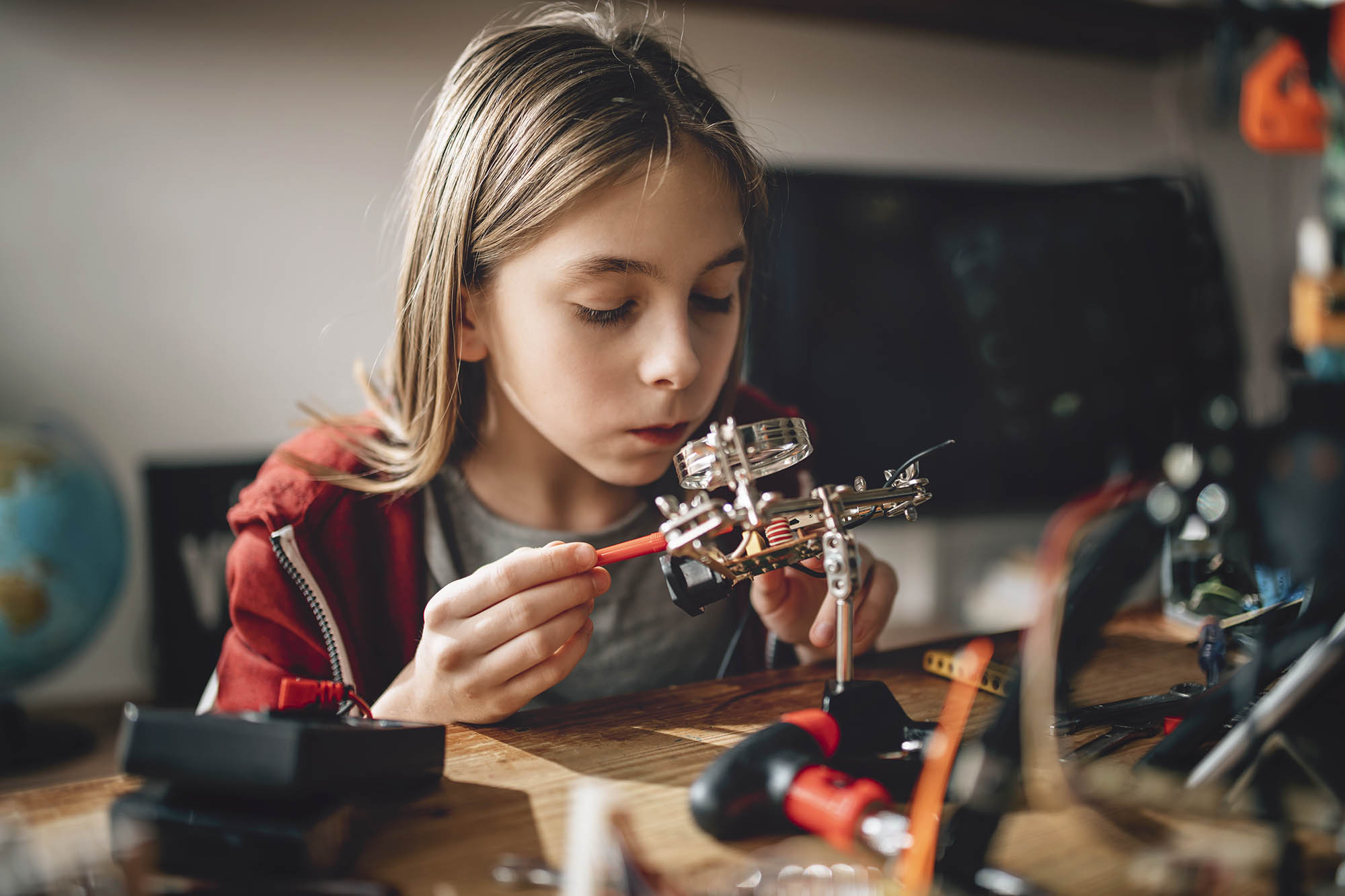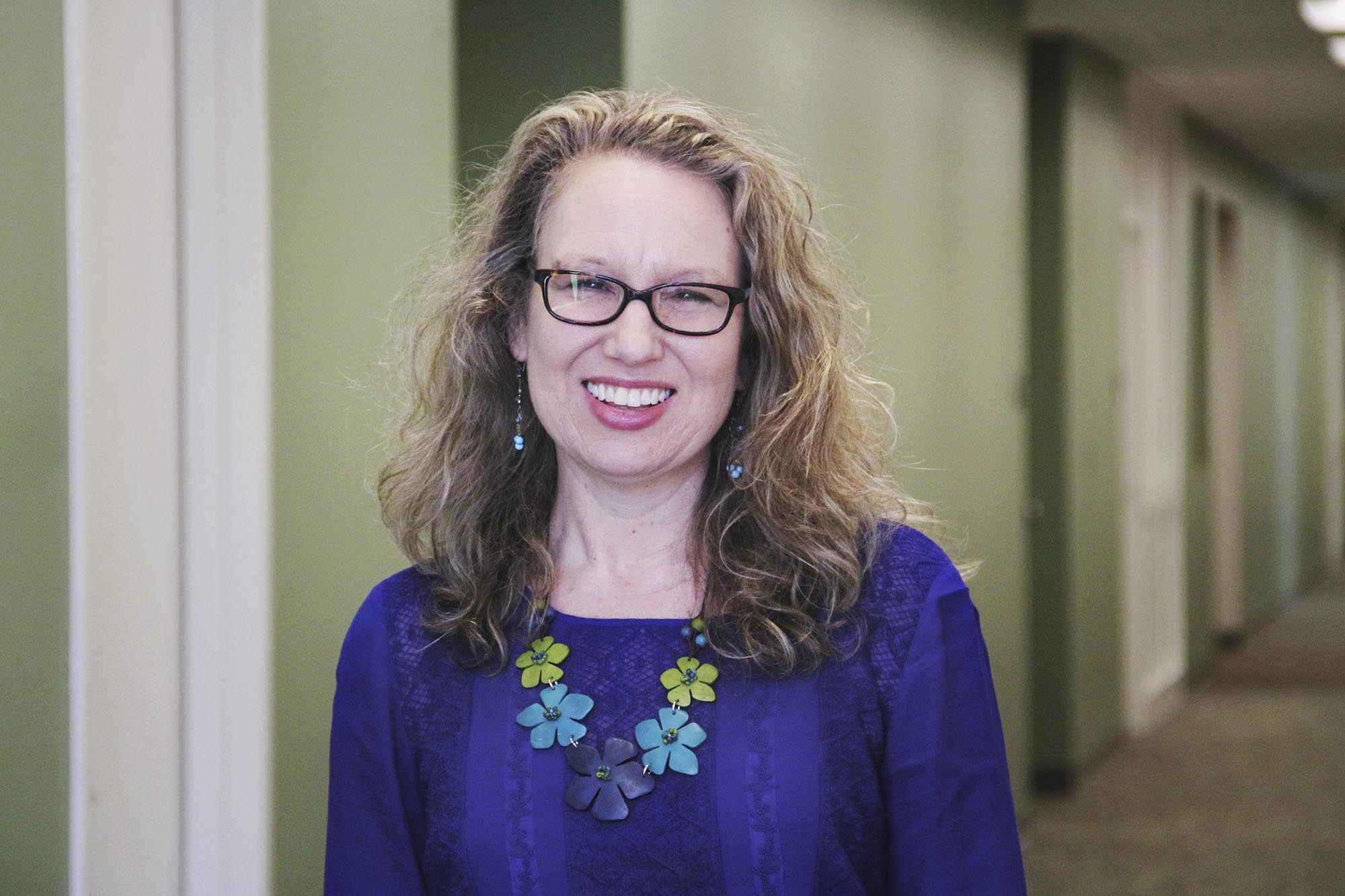“The underlying needs that inform these resources are relevant for anyone who has a young adolescent in their life, from parents and other family members to mentors to coaches,” said Nancy Deutsch, Linda K. Bunker Professor of Education and the director of Youth-Nex: The UVA Center to Promote Effective Youth Development. “Understanding those motivations can help you better respond to address that underlying need.
“That may be especially important as teens’ worlds are turned upside down by the changes and constraints imposed by the pandemic.”
At the center of it all is a focus on equity, Deutsch said. When adults understand and support these four needs, they create conditions where every adolescent has a sense of belonging and feels empowered to find their purpose and place in the world
Supporting Autonomy
Unsurprisingly, one hallmark of adolescence is a desire to assert independence. But researchers are careful to note the key difference between having a voice and having true agency. While an opportunity to share ideas and perspectives is valuable, agency is about being able to make decisions that influence your life.
Teachers can support the need for autonomy by providing opportunities for students to explore and make choices in their education through methods like interdisciplinary, project-based learning. In one featured example, eighth-graders applied design-engineering principles to build a chicken coop for their rural school.
Chad Ratliff is principal of Albemarle County Lab Schools, which focuses on open-ended, project-based learning. He has worked closely with the Remaking Middle School initiative and strongly believes in bringing more autonomy to middle school. In his four years as principal, he’s watched many students go from disengaged to excited about learning when they’re given a greater say in their education. “It has everything to do with how you are designing learning experiences for students that allow them voice, agency, autonomy and that kind of intellectual freedom,” he said.
Adolescents still depend on the adults in their lives for guidance as they develop the skills they need for agency, however. For example, a middle school student may struggle with time management despite wanting the autonomy to complete school assignments on his own. A family member can provide support by sitting down with him to check his planner together at the same time each evening, setting up a quiet place to complete assignments, and sticking with these routines consistently until the student can independently check his planner and begin his assignments on his own.
Advancing Competence
In adolescence, the brain goes through a period of enhanced plasticity during which it becomes more specialized and efficient – a burst of cognitive growth second only to early childhood. Middle school students are increasingly able to display adult-level skills like future thinking (anticipating the need to work on an essay during the week before a weekend soccer tournament, for example) and social cognition (like recognizing the appropriate time to interrupt a conversation).
But as they develop these new skills, they may stumble and struggle with insecurity. According to researchers, adolescents need to feel like they can accomplish important tasks and be successful in areas that matter to them. A sense of competence, which is related to having a “growth mindset,” leads to confidence – and a willingness to try new things and persevere through challenges in the future.
It has everything to do with how you are designing learning experiences for students that allow them voice, agency, autonomy and that kind of intellectual freedom.
- Chad Ratliff, principal of Albemarle County Lab Schools
Developing competence and a growth mindset involves learning through trial and exploration, with opportunities to stretch the mind and practice these new advanced thinking skills. In schools, teachers can foster competence through open-ended work that allows middle school students to try out a variety of problem-solving approaches. Other strategies include switching from letter grades to standards-based learning with ongoing, embedded, and consistent feedback.
“When you stop and think about it, all of these strategies apply to how adults naturally learn,” said Ratliff. “It just makes sense. We’re simply replicating what we know about learning to fit the developmental stage of adolescence.”
Fostering Belonging
According to research, the changes in brain structure and function that occur during adolescence also increase young people’s sensitivity to social status, interest in spending time with friends and concern about fitting in with peers.
In other words, the focus on friendships isn’t just a desire to distance from family – it’s an important developmental need as adolescents learn how to understand and navigate adult relationships. Instead of focusing on negatives like peer pressure, researchers say adults can view peer relationships as a strength to be cultivated for healthy development and learning.
“These are wonderful qualities we can use in educational experiences to help them develop into strong leaders and thinkers,” said Stephanie Passman, head teacher at the Albemarle County Lab Schools and a contributor to the Remaking Middle School initiative.
Passman, a former elementary school teacher, was inspired to get involved with middle school to help address social-emotional needs that she felt were being sidelined. “We in education have really worked to meet all of the types of needs for kids in elementary school, but sometimes in middle school that extra support for social-emotional support falls off,” she said. “There can be a focus on academics to the detriment of their well-being.”
When you stop and think about it, all of these strategies apply to how adults naturally learn. It just makes sense. We’re simply replicating what we know about learning to fit the developmental stage of adolescence.
- Chad Ratliff
Leaning into social-emotional needs, like belonging, helps students grow into well-adjusted adults. It can also help with learning and academic achievement. For example, a teacher could facilitate more student discussions, try peer-to-peer tutoring, or encourage students to communicate learning goals with peers in order to build a community of support.
“Healthy peer relationships provide adolescents with important emotional support and build their social skills,” Deutsch said. “By structuring opportunities for teens to receive social feedback from their peers in positive ways, adults can fuel positive peer interactions and foster engagement in learning, tapping into the positive potential of peers.”
Promoting Identity
Adolescents are developing their adult identities, seeking to understand their role and contribution to the world – and wanting to be recognized as individuals. They are also increasingly aware of how their social identities like race, class, ethnicity and gender factor into their sense of self. Exploring identity is how students begin to find meaning and purpose.
“Looking back on my teen years, I really appreciate how my mother was able to distinguish between my desire to explore different identities in a harmless way, like through questionable clothing choices, and actual unhealthy or risky behavior,” Deutsch said. “By not sweating the small stuff and giving me the freedom to explore in harmless ways, she left room for me to figure out who I was and try out different identities. Because I could do that safely and in the open, it also made it possible for her to see and be able to respond to other behaviors that could have been risky.”
Healthy peer relationships provide adolescents with important emotional support and build their social skills.
- Nancy Deutsch, Linda K. Bunker Professor of Education
For families, supporting this developmental need can look like allowing freedom to experiment with style, providing resources or answering questions. For teachers, lesson plans that support identity development include themes that encourage adolescents to consider who they are, what they bring to the table and how their identity shapes their view of the world around them.
Celebrating individuality in adolescents is critical, yet it’s missing from the typical middle school experience, which was designed to be convenient for the masses, Passman said. But guided by developmental research, a better vision is taking shape.
“What the ideal middle school looks like – we’re still figuring it out, and it probably doesn’t look the same to everyone,” Passman said. “But it’s a space that’s responsive to the needs of students in a supportive and nurturing way that recognizes each of them as individuals. When students feel safe and comfortable, and their core developmental needs are being met, then they can be in the right headspace to grow as learners and thinkers in a way that they’re excited about – the same way we do as adults when we choose to learn something new.”
Available Resources
For teachers and administrators who want to learn more about how to support autonomy, competence, belonging and identity in the classroom, the Remaking Middle School initiative resources are available for free on the School of Education and Human Development website:
The project has also released a new podcast series, “Lessons in Adolescence,” exploring the many facets of adolescence, from the adverse to the awkward to the awesome. Listen online or subscribe wherever you get your podcasts.











